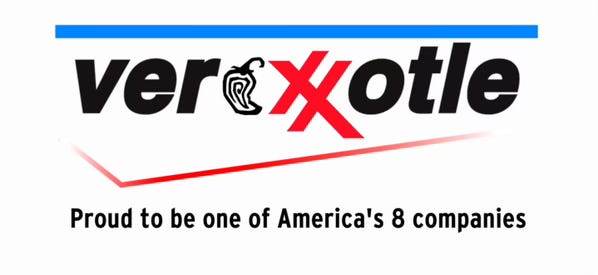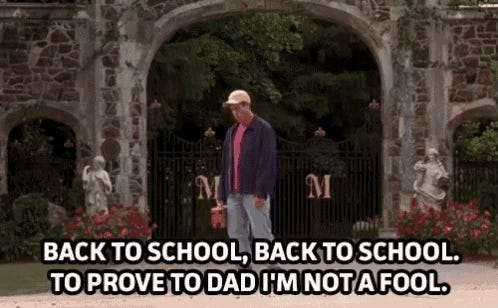Profanity. Swearing. Curse words. Whether or not a character swears (and how much) is part of how their distinct voice communicates something about who they are. But what does it mean for people to use impolite language?
Alex Orlando starts us off with a look at the origin of swear words, going back to Roman times, and the concept that “A taboo about the world becomes a taboo about the word.” Michael Adams suggests that profanity is part of our birthright as humans, and there are a variety of benefits to deploying it:
Some brain research even suggests that profanity is a healthy stress release, especially when we’re in pain. Other research has found that there’s a part of the brain that stores profanity, which suggests that profanity is part of being human, but that’s why speakers intuitively reserve profanity for when it counts – it’s valuable and we can’t afford to swear so much that it loses its edge.
Gilad Feldman, Huiwen Lean, Michal Kosinski, and David Stillwell test the hypothesis that people who swear more are less honest, and find that honesty and profanity actually go hand in hand. If you’re looking to create your own custom cussing for a fantasy or science-fiction world, consider the findings of Shiri Lev-Ari and Ryan McKay. They looked for cross-linguistic patterns to see if people could use the phonetic sounds of a word to tell if it was swearing or not.
Whether or not to use salty language isn’t just about character: It’s also about audience and content ratings. Jake Rossen gives an overview of the tests and changes of television’s standards for profanity. Kristy Beers Fägersten and Monika Bednarek analyze over 60 years of popular TV catch phrases to chart patterns of when memorable lines included profanity (or pseudo-profanity). Saveydro collects examples for a discussion of the rules around how much (and what kind) of profanity you can use and still keep a PG-13 film rating:
👋 Are you new here?
Inneresting is a weekly newsletter about writing and things that are interesting to writers. Subscribe now to get more Inneresting things sent to your inbox.
🧩 Media Company Mergers, the FTC, and the WGA Strike
On the Scriptnotes Sidecast, John and Drew discussed the new FTC guidelines for mergers currently under review, and how this relates to the WGA and SAG-AFTRA strikes.
For a deeper dive into how mergers impact the entertainment industry, the WGA released a report titled The New Gatekeepers:
Disney, Amazon, and Netflix are positioning themselves to be the new gatekeepers of media, growing through acquisitions and using their increased power to disadvantage competitors, raise prices for consumers, and to push down wages for creative workers.
But there’s something that you can do to help prevent anticompetitive mergers and monopolies.
Read through the proposed FTC guidelines, and then add your comments before the September 18th deadline. You don’t need to be a WGA member, or even someone working in the entertainment industry to leave a comment! Unfair business practices and anticompetitive consolidation of power creates real harm for consumers, workers, and business owners.
Don’t forget, WGA effort to create a fair contract is still needs your support!
If you are interested and able, join a picket line! The Writers Guild also has a list of other ways to help.
⏱️ Get your words on the page!
Each week we post a comment thread for writers to meet up, cheer each other on, and put some words on the page with a Write Sprint.
What’s a Write Sprint?
John wrote up an explanation, but here’s the short version: Set a timer for 60 minutes, close down all distractions, and do nothing but write until that timer goes off.
A sprint like that is a great opportunity to try new things, even if you delete them later! Give yourself the space to see what happens on the page right now instead of worrying about what it needs to look like when it’s finally polished.
Shout out to last week’s Sprinters Mark Leiren-Young, Brian Matusz, Elyse Moretti Forbes, Aimee Link, and Teresa Jusino!
🎓 Make the Grade with Highland 2
With the start of a new school year, college and university students need the right tools for writing. That’s why Quote-Unquote Apps offers a free year-long license for students to unlock all the pro features of Highland 2!
Students: All it takes to get started is to fill out your information including a picture of your student ID!
Once you’ve received an email saying your application for a student license is approved, you’ll need to download the free basic version of Highland 2 from the Mac App Store and follow the instructions in your email to unlock the pro features.
And faculty can sign up, too! Personal licenses for professors can use the same form as students, or if you want your institution to get Highland 2 installed in a computer lab, email us at support@quoteunquoteapps.com for more information.
Previously on Inneresting…
In case you missed it, in last issue’s most clicked link Lauryn Bowden breaks down what The Bear understands about working in a kitchen, along with the shorthand expressions used in that workplace.
What else is inneresting?
Kate Lindsay considers the spread of misinformation when news comes filtered through personalities, like influencers.
Based on the true story of the last time you were forced to follow arbitrary guidelines to set up a new password, The Password Game turns infosec into a puzzle.
Amitav Ghosh explains the connection between the modern climate crisis and European colonialism:
So, in my view, it was really this violence that Europeans unleashed upon other peoples that ultimately became a violence unleashed upon the Earth. It was when they began to treat people as resources that the idea came to them that everything was a resource meant for the mastery of a very few. Because let’s not forget, the colonialists, the conquistadores, and so on, they were a tiny minority even within their own countries. They were elites really often. And they also unleashed the same kind of violence against farmers and the peasantry in their countries.
And that’s what’s inneresting this week!
Inneresting is edited by Chris Csont, with contributions from readers like you and the entire Quote-Unquote team.
Are you enjoying this newsletter?
📧 Forward it to a friend and suggest they check it out.
🔗 Share a link to this post on social media.
🗣 Have ideas for future topics (or just want to say hello)? Reach out to Chris via email at inneresting@johnaugust.com, Mastodon @ccsont@mastodon.art, Bluesky @ccsont.bsky.social, or Threads @ccsont@threads.net







